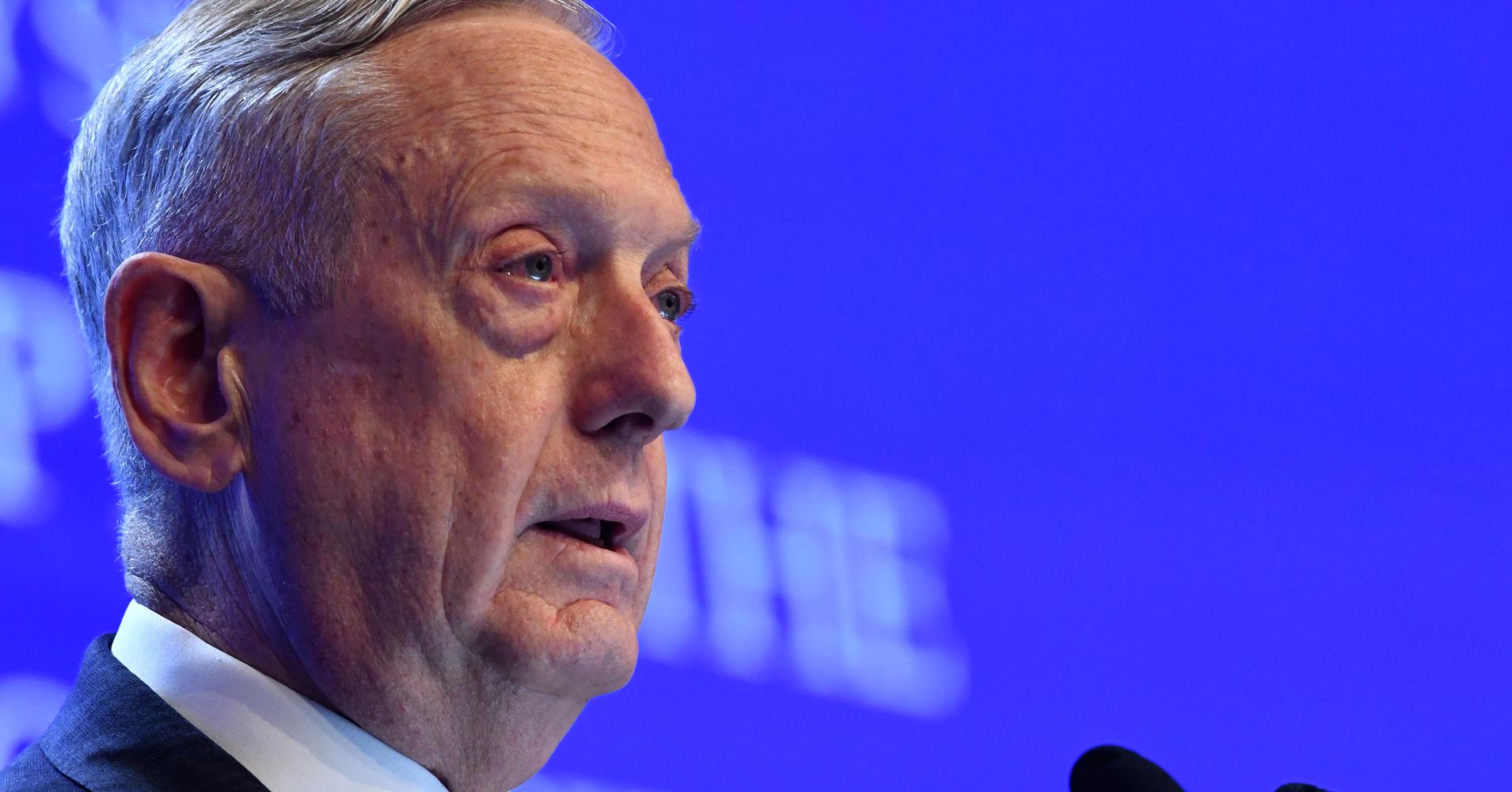
U.S. Secretary of Defense James Mattis blasted Beijing on Saturday for the militarization of artificial features in the South China Sea, warning the Asian giant of potential penalties ahead.
If China does not find a way to work more collaboratively with countries who have interests in the disputed region, there could be large consequences, the former four-star Marine Corps general said at the Shangri-La Dialogue, an annual security summit in Singapore.
Beijing’s series of recent provocations in the disputed waterway, which include the installation of anti-ship cruise missiles and radar jamming equipment on several of its outposts — in addition to the landing of bomber aircraft on Woody Island — has triggered concern among neighboring countries who also lay claim to the area.
“The placement of these weapon systems is tied directly to military use for the purpose of intimidation and coercion,” Mattis said.
In response to “China’s continued militarization,” the world’s largest economy recently uninvited Beijing from naval exercises known as Rim of the Pacific, or RimPac, Mattis said. Last week, two U.S. Navy vessels also sailed near China-controlled islands in what Mattis called “an affirmation of the international rules-based order.”
But such actions are still “a relatively small consequence,” the defense secretary said, adding: “I believe there are much larger consequences in the future when nations lose the rapport of their neighbors.”
Militarizing features would never endorse a country’s standing in the world, he added.
The U.S. will continue to pursue “a results-oriented relationship with Beijing, competing vigorously where we must,” Mattis said. “We’re prepared to support China’s choices if they promote long-term peace and prosperity for all in this dynamic region.”
Mattis also highlighted several components of the U.S. Indo-Pacific strategy, pledging to support Asian allies in strengthening the rule of law and protecting maritime borders. “No one nation can and should dominate the Indo-Pacific,” he said.
Under President Donald Trump’s administration, Washington has made “a free and open Indo-Pacific” — a term replacing the more widely used “Asia Pacific” label to acknowledge a role played by India — the cornerstone of its foreign policy in the continent. And in a symbolic move recognizing the growing importance of the Indian Ocean, the U.S. military on Wednesday renamed its Pacific Command the U.S. Indo-Pacific Command.
“Our Indo-Pacific strategy informs our relationship with China,” Mattis said. But “China’s policy in the South China Sea stands in stark contrast to to the openness of our strategy,” he continued.
The U.S. Department of Defense is also committed to working with Taiwan so the self-ruled island can maintain sufficient self defense, the defense secretary continued. The White House has warmed to Taipei through a series of actions including arms sales and encouraging visits between U.S. and Taiwanese officials. That’s angered Beijing, which claims Taiwan under a policy known as “One China” and opposes other countries pursuing ties with Taipei.
Regarding the ongoing diplomatic efforts with North Korea, Mattis re-stated that Washington’s objective “remains the complete, verifiable and irreversible denuclearization of the Korean Peninsula.”
The issue of U.S. troops in South Korea will not come up in the June 12 summit between Trump and North Korean ruler Kim Jong Un, the American official indicated. Pyongyang has long said it may only agree to relinquish its nuclear weapons if the U.S. withdraws its armed forces from the South.
Discussion about the number of U.S troops in South Korea is subject to bilateral discussions between Washington and Seoul that are separate from the North Korea negotiations, Mattis said.

